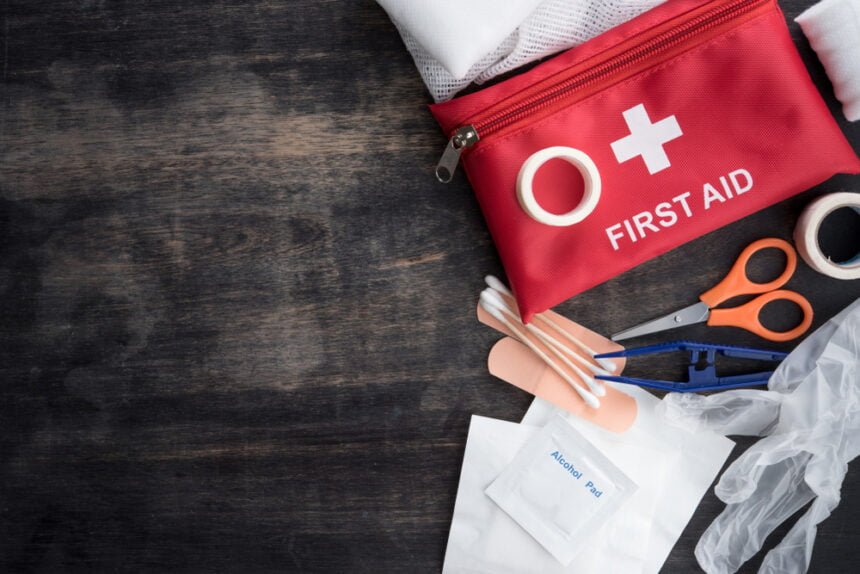You’re hiking in the Rockies when your buddy twists an ankle. Or you’re in downtown LA and witness a car accident. Would you know what to do?
Whether you’re up a mountain or on a city street, understanding first aid is crucial. In our guide, ‘From Mountains to Metropolis’, we’ll teach you the essentials of first aid, from altitude sickness to urban accidents.
Be prepared, because you never know when you’ll need to become a first responder.
Understanding Basic First Aid Principles
Before diving into the specifics of first aid, it’s crucial for you to grasp a basic understanding of its principles, both for situations in the wilderness and within the city’s hustle and bustle. Whether you’re hiking in the mountains or navigating through crowded city streets, emergencies can strike at any moment, and Wilderness First Aid Vs. City First Aid knowledge could be the difference between life and death.can strike at any moment and your knowledge could be the difference between life and death.
First aid is the immediate assistance given to anyone suffering a sudden illness or injury. It’s not about becoming a doctor on the spot, but rather, providing quick, initial care until medical help arrives. The basics you need to know include recognizing the seriousness of the situation, keeping calm, ensuring the safety of both yourself and the victim, calling for professional help if needed, and providing appropriate treatment.
Essential First Aid Kit Contents
When it comes to emergencies, you’ll need to have a well-stocked first aid kit that’s easily accessible at a moment’s notice. Your kit should include essential items such as bandages in various sizes and shapes for covering wounds, cuts, and scrapes. Antiseptic wipes or solutions are vital for cleaning injuries and preventing infection.
Sterile gauze pads and adhesive tape are useful for dressing larger wounds, while tweezers can help remove splinters or debris. A digital thermometer is also crucial for checking body temperature in case of fever. Painkillers, such as aspirin or ibuprofen, can alleviate discomfort from injuries or ailments. Include a pair of medical gloves for sanitation and protection when treating wounds.
A blanket is useful for keeping warm in case of shock, and a flashlight with extra batteries is necessary for emergencies in low-light conditions. Having a manual or a guidebook on basic first aid methods is also beneficial.
Lastly, always remember to check your kit regularly and replace expired or used items. Being prepared for emergencies, whether in the mountains or the metropolis, begins with having a fully equipped first aid kit.
Altitude Sickness: Recognition and Response
Now that you’ve got your first aid kit stocked, let’s tackle one specific health concern you might encounter, especially in mountainous regions: altitude sickness. This condition can hit you when you ascend to high altitudes too quickly, affecting your body’s ability to get enough oxygen. Knowing how to recognize and respond to this situation can be a lifesaver.
Here are some telltale signs to watch out for:
- Persistent headaches that don’t get better with over-the-counter painkillers.
- Nausea or vomiting that doesn’t seem related to other illnesses.
- Shortness of breath or panting even when you’re at rest.
- Extreme fatigue and a sudden inability to exert any energy.
If you or anyone else experiences these symptoms, it’s crucial to descend immediately. Don’t push yourself or let anyone else keep climbing. Remember, altitude sickness can turn into a lethal condition called High Altitude Pulmonary Edema (HAPE) or High Altitude Cerebral Edema (HACE).
Stay safe and knowledgeable, because the mountains are a marvel to explore, but they demand respect.
Handling Injuries in Remote Locations
How do you handle injuries in remote locations where professional medical help isn’t immediately available?
Your first priority should be to stay calm. Panic won’t help you or the injured party. After that, assess the extent of the injury.
If it’s minor, treat it appropriately with your first aid kit. If it’s severe, stabilize the person and prevent further injuries or complications.
In cases where you’re dealing with fractures, immobilize the affected area using splints. If someone’s bleeding heavily, apply pressure with a clean cloth to stop or slow down the blood flow. Use bandages from your first aid kit to secure the cloth in place.
In instances of severe, life-threatening conditions such as chest pains or difficulty breathing, make the person as comfortable as possible and call for professional medical help. If you’re in an area with no cell service, use a satellite phone or emergency beacon.
Urban Accidents: Common Injuries
In the hustle and bustle of city life, you’re likely to encounter a different set of common injuries compared to remote locations. Urban accidents often occur in high-traffic areas where people, vehicles, and infrastructure all exist in close proximity.
Here’s a list of common urban injuries that you might come across:
- Falls: These can happen anywhere, but uneven sidewalks, metro stairs, and high-rise buildings present unique risks.
- Vehicle-related injuries: Pedestrians and cyclists are particularly vulnerable in a city full of cars.
- Burns: From hot coffee spills to apartment fires, these injuries are more common than you’d think.
- Cuts and lacerations: Broken glass and sharp metal edges are everywhere in a city.
These injuries can be frightening, but remember, you’re not alone. Help is often just a phone call or a shout away. With knowledge, preparation, and a calm demeanor, you can manage these situations effectively.
Understand the risks, stay vigilant, and you’ll be ready to handle any urban accident that comes your way.
First Aid for Traffic-Related Incidents
While you’re trying to navigate the concrete jungle, it’s crucial that you’re also prepared to handle traffic-related incidents, which are unfortunately a common occurrence in urban environments. Your quick, informed response can make the difference between life and death in these situations.
If you come across a traffic accident, call for professional medical help immediately. While waiting for their arrival, assess the scene for safety. It’s paramount you don’t put yourself in danger while trying to help others. If it’s safe to approach, check the injured. If they’re unconscious, perform the ABC (Airway, Breathing, Circulation) check.
In case of bleeding, apply pressure with a clean cloth to stop it. Don’t try to move a seriously injured person unless they’re in immediate danger. For minor injuries, comfort and reassure the person until help arrives.
Managing Environmental Illnesses
Why, you might wonder, should you know about managing environmental illnesses, especially when you’re miles away from wilderness? Well, these conditions aren’t exclusive to the great outdoors. They can strike you in your backyard, at a city park, or even in your air-conditioned office.
It’s crucial to understand that environmental illnesses range from heatstroke to hypothermia, from dehydration to altitude sickness. Every situation demands a different response, and quick, informed decisions can make a world of difference.
Here are some reasons that might hit close to home:
- Your child could face heatstroke during a school sports event.
- A family ski trip could turn into a battle with hypothermia.
- Your city park run can lead to dehydration in the summer heat.
- A flight or a hike to high altitude areas can trigger altitude sickness.
Being prepared isn’t about living in fear, it’s about being able to react properly when things go wrong. So, arm yourself with knowledge, because when it comes to environmental illnesses, every second counts.
First Aid Training and Courses
Now that you’re aware of the potential risks, it’s time to explore the essential role of first aid training and courses in dealing with these environmental illnesses. Equipping yourself with first aid knowledge isn’t just a plus—it’s a must. Whether you’re an outdoor enthusiast or a city dweller, accidents can occur anytime, anywhere, and having the skills to respond effectively can make a significant difference.
First aid courses provide comprehensive training, teaching you how to treat wounds, manage heat-related conditions, respond to allergic reactions, and even handle life-threatening situations like heart attacks. You’ll learn practical skills, like performing CPR, using an automated external defibrillator (AED), and dressing wounds.
In addition, these courses also teach you the correct response to emergencies. You’ll learn to remain calm, assess a situation quickly, and make informed decisions. This can help prevent further harm and potentially save lives.
Conclusion
In the U.S. alone, nearly 40 million people seek medical help for accidents each year. That’s a staggering number.
Whether you’re scaling a mountain or navigating a bustling city, knowing first aid can make a life-changing difference.
So, don’t wait. Equip yourself with first-aid knowledge, pack a reliable kit, and be ready to respond.
After all, it’s not just about surviving, it’s about helping others to do the same.
Make first aid your priority.








